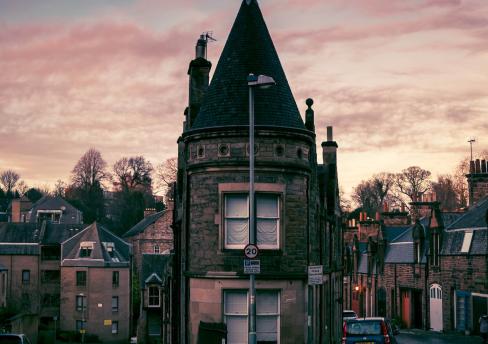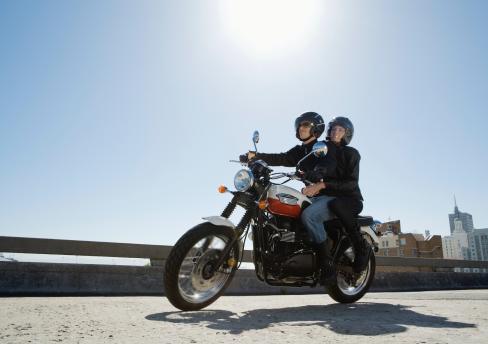In this article, Jennifer considers a decision from the English Courts which will likely affect occupiers' liability cases in Scotland, in particular in claims brought against occupiers in the hospitality sector.

Two years on from the first UK Covid lockdown, Jennifer Thomson considers recent decisions issued by the courts, and whether these decisions offer clarity or calamity in the area of Occupiers' Liability. In her previous article (Occupiers' Liability: Damages and Calamities in Recent Times | Morton Fraser Lawyers | Edinburgh and Glasgow (morton-fraser.com), Jennifer considered decisions from the Scottish Courts.
The White Lion Hotel v James (Deceased) 2021 EWCA Civ 31 was a decision from the English Appeal Court published in January 2021.
Mr James was staying in a hotel room on the second floor of The White Lion Hotel. In the early hours of the morning of 5 July 2015 Mr James tragically fell to his death from the window. Mr James had been leaning out of the window, sitting on the windowsill, possibly smoking. He was holding the sash window open when he fell as the opening mechanism on the window to hold it open was broken. The Hotel pled guilty to criminal charges relating to the accident circumstances.
Mr James' widow brought a claim against the Hotel alleging that the Hotel were in breach of Section 2 of the Occupiers' Liability Act 1957. The 1957 Act is equivalent law to the 1960 Occupiers' Liability (Scotland) Act.
At first instance the English Courts found that the Hotel had breached their duties as occupiers under the 1957 Act. If a risk assessment had been done, it would have noted the window was a risk. In particular, the window mechanism was faulty. This increased the risk of injury as it meant that the window had to be held open. A risk assessment would have resulted in an opening restrictor being fitted on the window to prevent the window from being fully opened. Damages were reduced by 60% for contributory negligence on the part of Mr James.
The Hotel appealed the decision. The Hotel argued that an action for damages could not be brought by Mr James' widow given he had chosen to run an obvious risk by choosing to lean out a window to smoke (the well-established legal doctrine of "volenti").
The Court of Appeal did not accept the Hotel's argument. The Appeal Court found that the actions of Mr James were one of a number of factors relevant when considering the issue of liability. Other factors relevant to liability included the low cost of any remedial measures which could be taken to eliminate a risk, and the social utility about the state of the occupier's premises at issue. The Appeal Court also upheld the 60% finding of contributory negligence.
Does the decision in The White Lion case provide clarity or calamity?
This decision provides clarity that the duty on occupiers can vary depending on who the duty is owed to. The Appeal Court placed considerable emphasis on the fact that Mr James was a hotel guest at the time of the accident, rather than a visitor to a public, outdoor space. A hotelier therefore assumes a greater responsibility under occupiers' liability to a guest given the nature of its business in providing overnight accommodation.
This decision also provides clarity that the reasonable foreseeability of a risk is one of a number of factors that Courts will consider when assessing liability. Other relevant factors include the cost of remedial measures to eliminate a risk, and the social utility of the state of the premises. The Court of Appeal considered that it was reasonable for the deceased to want to open the window of his hotel room.
This decision also provides clarity about volenti: the Appeal Court said that the volenti defence is always available to occupiers to argue. However, to succeed it must be shown that an injured party was fully aware of the relevant danger and the consequent risk. This is a high burden of proof. Even in circumstances where an injured party chooses to run an obvious risk, a claim under occupiers' liability can still succeed. Mr James' widow was successful in this case, despite there being an obvious risk of Mr James falling when leaning out of an open window. For occupiers to succeed with a volenti defence, they would also likely require to demonstrate that they have carried out steps like risk assessments covering the risk, and that they have put in place any suitable control or mitigation measures.
This case also provides clarity that, where there is a criminal conviction relating to an accident circumstances, it will be hard for occupiers to argue that this is not good evidence of a breach of occupiers' duties.
What does this decision mean for Scotland?
The decision in this case would likely be persuasive in Scotland, in particular in civil claims raised against hoteliers and other accommodation providers for breach of occupiers' liability. Hoteliers owe a high duty of care to their guests. This decision also supports the approach taken by the Scottish Courts in other cases that Courts will look at a range of factors when assessing liability. No one fact or issue is determinative of liability attaching to or being successfully defended by an occupier.
It will be interesting to see if defenders argue the volenti doctrine in occupiers' liability claims in Scotland. It is likely we will see an increase in the number of claims relating to the domestic hospitality industry in the next few years given the increase in popularity of staycations caused by Covid travel restrictions.
The content of this webpage is for information only and is not intended to be construed as legal advice and should not be treated as a substitute for specific advice. Morton Fraser LLP accepts no responsibility for the content of any third party website to which this webpage refers. Morton Fraser LLP is authorised and regulated by the Financial Conduct Authority.









